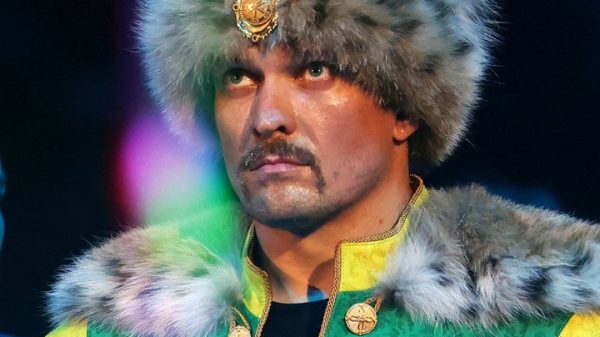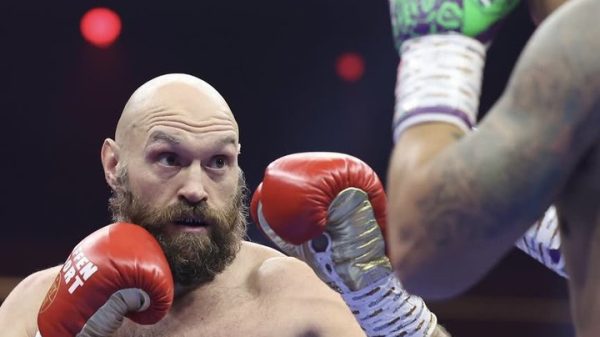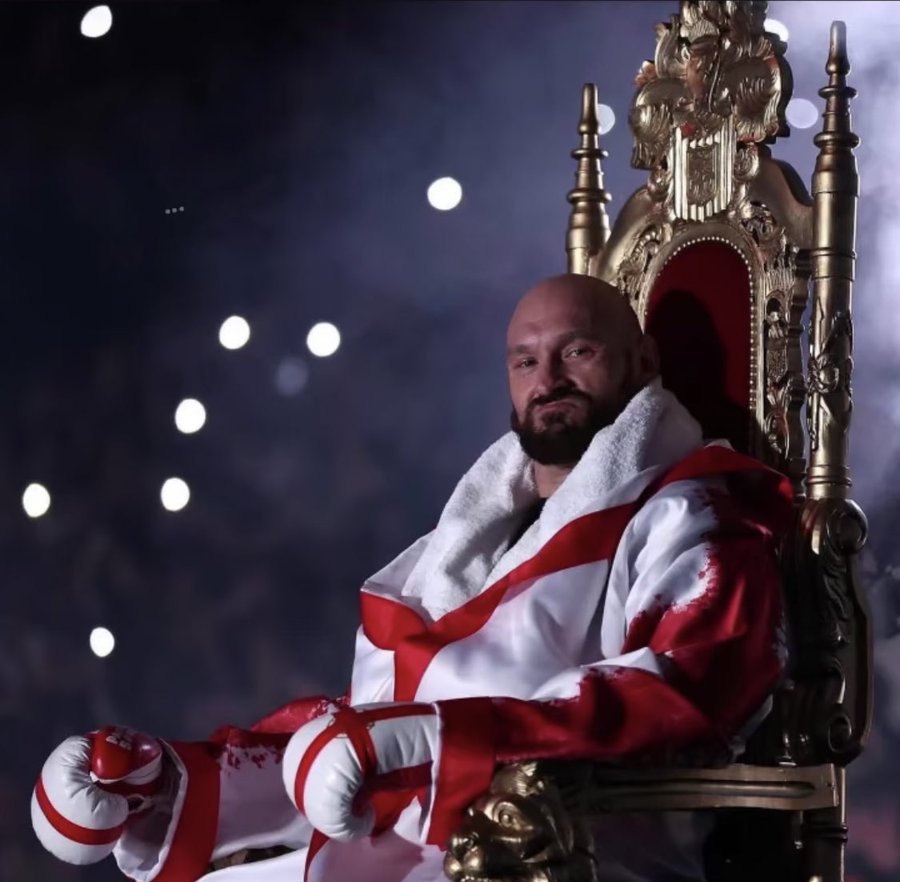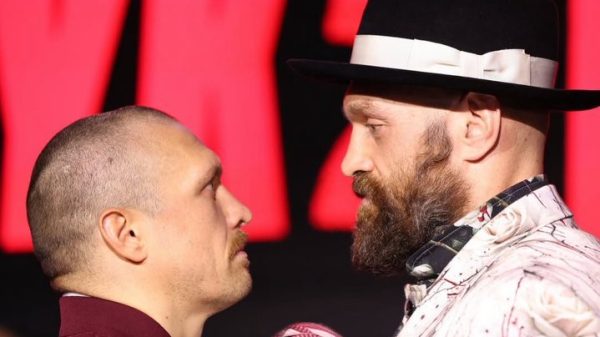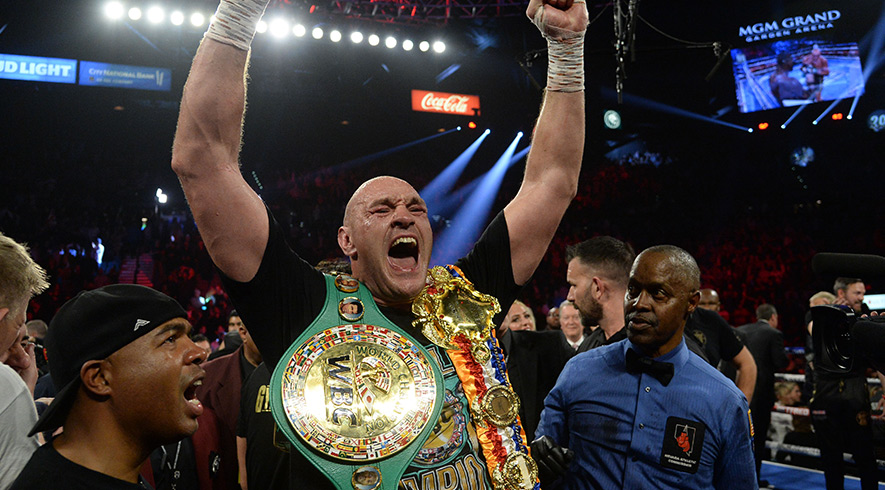By: Hans Themistode
Reality has slowly set in.
This isn’t a movie. Nor is it a new television series on the Sci Fi channel. No, the Coronavirus pandemic has turned the lives of everyone around the world into something that they can hardly recognize.
Bars have been shut down, clubs have boarded up their doors, clothing stores have turned their customers away and boxing gyms have seen their steely doors closed shut.

Although every sport and the lives of everyone has been affected in a major way, boxing and fitness companies have seemingly taken the biggest hit.
From the moment the Coronavirus made its unwanted presence known, the sport of boxing was sent reeling. Boxing events that were scheduled to take place months in advance were forced to cancel and fighters were forced to switch from their daily fitness routines to one that now resembles the life of a potato couch. Even names that seem invincible inside of the ring such as Canelo Alvarez, Anthony Joshua and Tyson Fury were forced to take a standing eight count.
Fighters who spent their entire lives ducking punches, are now being taught a new way to fight, as social distancing has been deemed the best way to end the spread of the virus.
Although it has been proven to be our best line of defense, the unexpected closure of boxing gyms comes with a heavy price. Unlike clothing stores and other businesses that serve one particular need, boxing gyms provided individuals with more than just a place to throw punches.
“That gym is an outlet for so many people,” said former amateur boxing standout and current owner of SouthBox gym Eric Kelly. “They work on their craft and achieve their goals. Some people want to be champions while others want to just shed a few pounds. Everybody has different training purposes. For others that gym is therapy. It’s a way out from whatever struggles they might be going through. Whether it struggles at home, at work or with spouses. The gym is just a way out for them.”
Eric Kelly has long had a love affair with the boxing gym. It’s where he not only made his name, but it’s also how he supports himself and his five kids. Over the years, Kelly evolved from a promising New York City fighter, to a street fighter, to now, one of the most recognizable names in the sport of boxing.
That isn’t hyperbole either. No matter if it’s a boxing arena with some of the biggest stars in the world present or simply a small gym with just your average joe’s trying to get a work out in, Kelly becomes the center of attention from the moment that he walks in. So to say that Kelly is feeling the effects of this abrupt work stoppage, would be putting it mildly.
“I’m a parent. I have five children. I’ve got a lot of bills and a lot of responsibilities. That gym is where I make my money. But also traveling to various gyms throughout the city to make my money. But all the gyms are closed, so what do I do?”
Unlike other companies that have no alternatives, Kelly has a few other options in terms of work. But they are hardly ideal.
“I’ve tried a few workouts through FaceTime and Skype but the transition isn’t smooth at all. It’s just not a convenient way of doing things.”
The inconvenience that Kelly describes is replaced with anxiety and fear when speaking to former world champion Heather Hardy.
The life of an athlete is different. Almost gloried to a certain degree. This current work stoppage affects the working class and those that live paycheck to paycheck. Not those who make constant television appearances such as Heather Hardy.

It’s true. Hardy has become a star over the years. Attracting major fights and gracing TV sets with her fan friendly style. But unlike her male counterparts who can afford a work stoppage for an extended amount of time, Hardy cannot.
“I am panicked,” said Hardy. “I’ll be honest, I am panicked, but I’m still functional. When Bruce told me this morning that Gleason’s is closing, I fell on the floor and cried because I don’t know how I’m going to take care of my family.”
“A lot of times, my fights will help me pay some late bills, allow me to treat my daughter to things we normally wouldn’t be able to afford. But my day-to-day job is what keeps the lights on,” she continued. “I train for fights and still teach my clients because I rely on them so heavily. It’s going to be a hard transition not fighting and not having that good paycheck.”
The tears that ran down the face of Hardy during her interview, highlighted the pain and struggle of a female fighter. For years, Hardy has pointed the finger in the direction of women’s pay in the boxing world. But oftentimes, she’s been overlooked.
Still, regardless of her circumstances, Hardy is trying to take the little that she does have and give back to those who need it most.
“We have to be really kind to each other and understand that for as little as we feel we have, there are people who have less than us. How can we help people with less than us? We start from the top, so that we can all make it to the other side … and rebuild together.”
The rebuild for Hardy and the entire boxing community won’t come easy. It also won’t come from taking a lackadaisical approach. No, creativity is the key to get out of this current mess.
“This whole situation forces you to think. You have to think outside of the box. You have to get creative. If you want to be special then you have to mastermind a plan that’s going to serve you good during this downtime. You have to use this time right now to figure things out. Your back is against the wall so what you gonna do? You can’t go to work, you can’t go chill at your boys house. You can’t even just go out for a walk so what you gonna do? Use this time to think. If you are an elite mind, then you can use this time to your advantage and that’s what I’m going to do. I can’t sit here and cry. You’re still alive so you have to figure things out.”

Too many times has sports been used in comparison to life.
A basketball court is just that, a basketball court. The football field is simply a green piece of grass. The correlation between those sports and life are infinitesimal. But boxing on the other hand, provides more life lessons than them all.
For professional fighters, they are taught how to fight during the most adverse situations. They’ve also been given the ability to adapt no matter what.
Those life lessons that Kelly learned in the ring, is exactly what he is leaning on today to get him through this situation.
“The fight is 12 rounds. You might lose the first round, you might lose the second round. You might get knocked down in the ninth round or you might get knocked down in the tenth round, but guess what? It ain’t over til it’s over. You got 12 rounds. I done seen dudes get knocked out in the 12th round. So you never give up. I’m not going to break down, I’m going to break through.”

